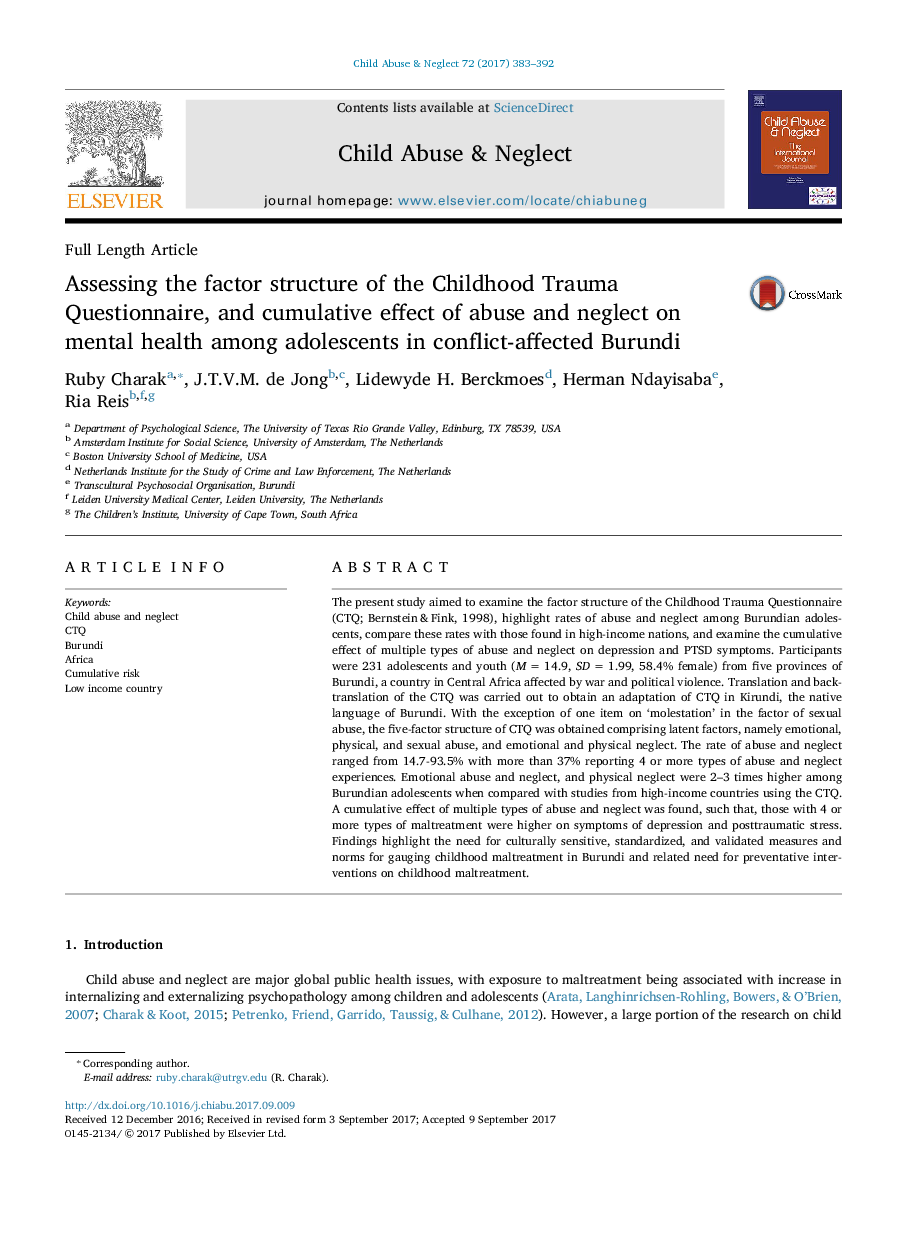ترجمه فارسی عنوان مقاله
ارزیابی ساختار فاکتور پرسشنامه ترومای کودک و تأثیر تجمعی سوء استفاده و غفلت بر سلامت روانی نوجوانان در بوجودی تحت تعارض
عنوان انگلیسی
Assessing the factor structure of the Childhood Trauma Questionnaire, and cumulative effect of abuse and neglect on mental health among adolescents in conflict-affected Burundi
| کد مقاله | سال انتشار | تعداد صفحات مقاله انگلیسی |
|---|---|---|
| 132795 | 2017 | 10 صفحه PDF |
منبع

Publisher : Elsevier - Science Direct (الزویر - ساینس دایرکت)
Journal : Child Abuse & Neglect, Volume 72, October 2017, Pages 383-392

